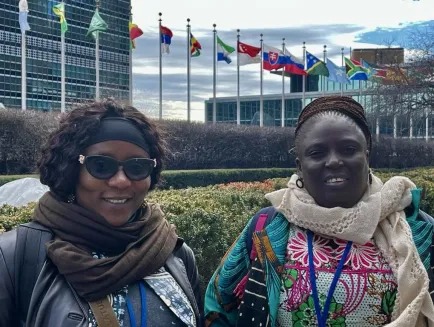The Committee to Protect Journalists (CPJ) has issued its first-ever safety advisory for foreign media workers entering the United States, following a noticeable rise in incidents involving increased border scrutiny and possible retaliation for critical reporting.
The advisory comes in response to growing concerns from journalists about how their work—particularly on sensitive political topics—might affect their ability to travel or gain entry into the U.S.
“CPJ has seen a spike in concern among journalists whose work entails travel to the United States,” said Catalina Cortés, CPJ’s interim chief emergencies officer. “Our safety advisory helps journalists proactively manage these risks.”
Journalism Under Scrutiny
Foreign journalists, particularly those reporting on politically charged subjects such as national security or U.S. foreign policy, are being warned to assess how their reporting and online presence may be interpreted by immigration authorities. CPJ cautioned that criticism of U.S. government officials or policies could lead to heightened scrutiny at the border and even visa complications.
The dangers were underscored in June when Australian writer Alistair Kitchen was detained for 12 hours and denied entry after U.S. border officials at Los Angeles International Airport searched his phone and questioned him about his reporting on the Israel-Gaza conflict and the Columbia University protests.
CPJ condemned the incident as “a clear case of retaliation in connection with his reporting,” warning that it sends “a chilling message to journalists that they must support the administration’s narratives or face forms of retribution.”
Practical Guidance for Journalists
The CPJ advisory includes specific precautions journalists should take before traveling, such as:
• Completing a risk assessment
• Identifying emergency contacts
• Establishing check-in procedures with colleagues or family
• Carrying written contact information in case devices are confiscated
• Preparing for possible additional screening upon arrival
Importantly, the U.S. Customs and Border Protection (CBP) has the authority to search electronic devices without a warrant or probable cause. Journalists may be asked to unlock phones, laptops, and even social media accounts. Refusal can lead to detention or denied entry.
Digital Safety Measures
CPJ recommends journalists:
• Use full-disk encryption on all devices
• Remove or backup sensitive files to secure cloud storage unlinked to physical devices
• Make social media accounts private
• Avoid storing confidential contact lists on devices
Encryption tools like Apple’s Advanced Data Protection can provide extra security, but CPJ warns these measures are ineffective if travelers are compelled to unlock their devices at the border.
Know Your Rights
Journalists are also urged to familiarize themselves with U.S. border laws and protocols. Those with dual citizenship or traveling from countries listed under U.S. travel restrictions may face longer and more invasive questioning.
Interrogations may include questions about political affiliations, travel history, work experience, and coverage of controversial subjects. The American Civil Liberties Union (ACLU) advises carrying the phone number of a legal representative or rights organization and explicitly requesting to speak with a lawyer if detained.
“Rehearse what you might say if a border guard demands access to your phone or laptop,” the advisory says. “Avoid lying to agents, as this could constitute a criminal offense.”
While U.S. citizens cannot be denied entry, they are still subject to prolonged questioning or seizure of devices. Visiting journalists are particularly vulnerable to sudden changes in visa policy or detainment patterns at certain entry points.
Staying Informed and Prepared
CPJ emphasizes that awareness and preparation are crucial for minimizing risks. Journalists are encouraged to monitor State Department visa updates and contact CPJ’s emergencies team at emergencies@cpj.org if they encounter serious problems.
“Staying vigilant, knowing your rights, and having a plan can make all the difference,” said Cortés. “Our mission is to ensure journalists can continue their essential work without fear or obstruction—wherever they go.”
By Arnold Samura



